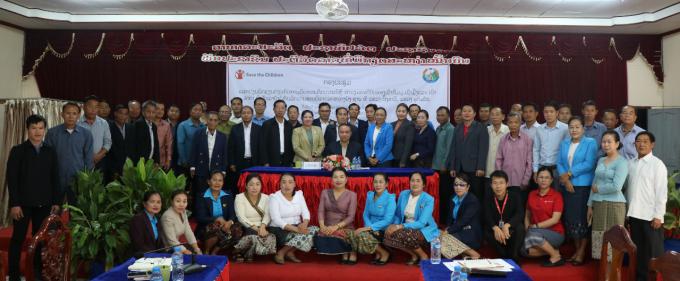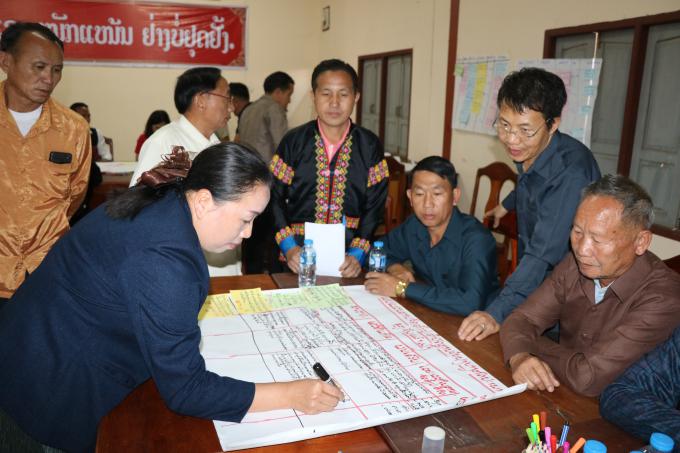Save the Children International in Laos supported advocacy activities to effect positive changes in customary law in Phongsali and Oudomxay provinces.

Taking place from February 27th to March 2nd, 2024, the SCI’s project aimed at preventing and responding to forced early marriage (CEFM) organized a meeting in collaboration with the Lao Women's Union of Luang Prabang Province, the Lao Front for National Development of Luang Prabang Province, and representatives of the Hmong and Kum Mu tribes. The purpose of the meeting was to exchange lessons on reviewing certain traditional laws or practices of the Hmong, Kum Mu, and Akh Khu tribes in Phongsali and Udomxay provinces.
The purpose of the learning session in this meeting was to bring lessons and experiences on the implementation of efforts aimed at improving certain traditional laws of the Hmong and Kummu tribes that contribute to gender inequality, early marriage, school dropout rates among girls, and the prevalence of domestic violence. This session aimed to facilitate discussion and exchange of lessons learned with representatives from the two provinces.
The meeting in Phongsali province was chaired by Mr. Thongsavan Thammavong, Deputy Secretary of the Provincial Party and Chairman of the Lao Front for National Development of Phongsali Province, and in Udomxay Province was chaired by Mr. Vanna Keosanti, Provincial Party Committee Chairman of the Lao Front for National Development of Udomxay Province. Additionally, participants included representatives from the provincial women's union, the provincial governor's office, the Lao Front, as well as chiefs from various ethnic groups at both provincial and district levels. There was a total of 60 participants, including 28 women from Phongsali province, and 70 participants, including 23 women, from Udomxay province.
Mr. Thongsavan Thammavong, Chairman of the Lao Front for National Development of Phongsali Province, said, "We are grateful to Save the Children International in Laos for supporting and facilitating this meeting, which is very important. Phongsali Province is home to many ethnic groups, and some traditional laws still pose obstacles to socio-economic development, especially regarding the roles of women and men. The majority of women do not have the roles they should."
This meeting facilitated inclusive community consultations for each tribe to research, discuss, and share lessons about good traditional laws that should be preserved, as well as some traditional laws that are not in line with the current socio-economic situation, especially concerning:
- Non-representation of gender equality.
- Early marriage.
- Out-of-school girls.
- Domestic violence.
Each group activity prioritized problems (customary laws) and researched the causes, effects, and plans to improve some of those traditional laws based on local conditions. This information serves as the basis for proposing legislation to the provincial governors of each province and implementing it at the local level.
 Laos
Laos 